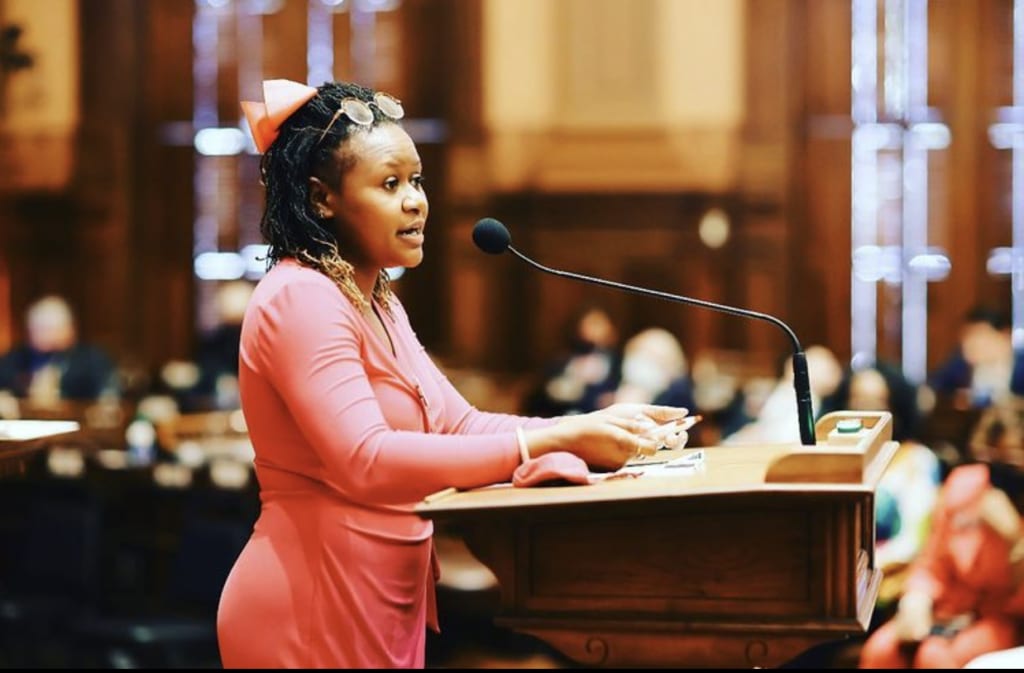Thurman helped shape the civil rights movement of the South after he talked to Mahatma Gandhi about nonviolence.
Howard Thurman was a man of firsts.
He was the first Black man to serve as dean of a chapel at a mostly white university. He helped establish the first major interracial church in the United States. He was the first person to lead a delegation of Black people to India to meet Mahatma Gandhi, the activist-leader who led the victorious nonviolent campaign for his country’s independent rule from Great Britain.
Thurman was born on Nov. 18, 1899, in Daytona Beach, Florida, Britannica cites. His grandparents, who were both formerly enslaved people, urged him to get an education because they felt it would be a weapon against discrimination.
Thurman took their advice and graduated from Morehouse College in 1923, then Rochester Theological Seminary, a college that is now the Colgate Rochester Crozer Divinity School, in 1926.
He served as pastor of a church in Oberlin, Ohio, before moving into school administration for historically Black universities that included Morehouse and Spelman colleges, according to his Boston University School of Theology biography. At Howard University, he was appointed its first dean of Rankin Chapel.
In the late ’20s, Thurman became the first Black board member at the Fellowship of Reconciliation, a group dedicated to peace. While on its board, he encouraged one of his former students, James Farmer, to study Gandhi’s nonviolent philosophy. Farmer would go on to help form the Congress of Racial Equality, the group that organized the transformative Freedom Rides in the 1950s’ Deep South.
Thurman met Gandhi in 1936 when he led a delegation of four Black Americans to India on a “pilgrimage of friendship.” Thurman had already attained renown as one of the country’s great religious philosophers and, through an intermediary, arranged the meeting. The two discussed the concept of non-violence and how it could be used to achieve societal change.
When Thurman returned to America, he immediately embarked on more difference-making efforts. He was one of the founders of the San Francisco-based Church for the Fellowship of All Peoples, the country’s first major interdenominational and integrated church. While in its service, he wrote the groundbreaking work, “Jesus and the Disinherited,” which is credited with helping shape the Southern civil rights movement. The book has become famous as the one Dr. Martin Luther King Jr. used for inspiration before the 13-month-long Montgomery bus boycott that led to the end of bus segregation in Alabama’s capital.
Thurman provided quiet counsel to civil rights icons like Farmer, King and Bayard Rustin, a key organizer of the seminal March on Washington in 1963, where King delivered his famous “I Have a Dream” speech. Smithsonian Magazine wrote that Thurman had a “profound” impact on King, who quoted from the religious leader’s work.
A decade prior, in 1953, Thurman began serving as dean of Marsh Chapel at Boston University, the first Black man to hold the position at a majority white university.
Thurman died on April 10, 1981, at the age of 81. As PBS recalled, he once said: “Do not be silent; there is no limit to the power that may be released through you.”
His power lives on today.
Never miss a beat: Get our daily stories straight to your inbox with theGrio’s newsletter.
The post Howard Thurman, inspiration to MLK, was a man of firsts appeared first on TheGrio.



